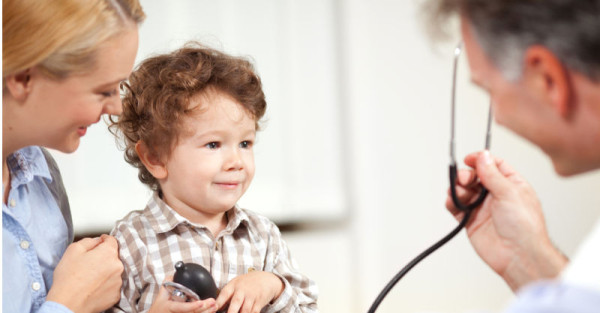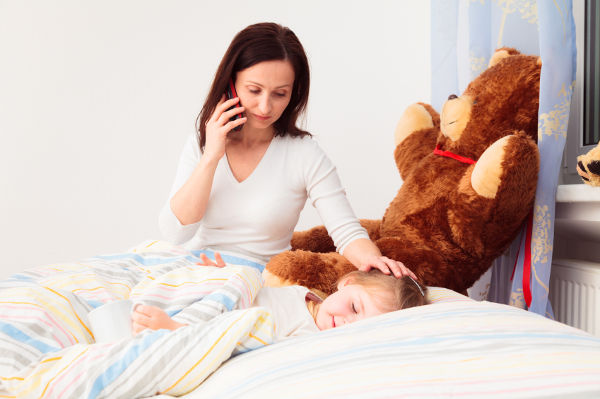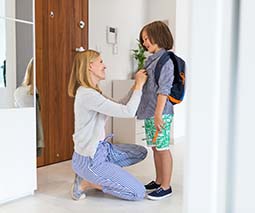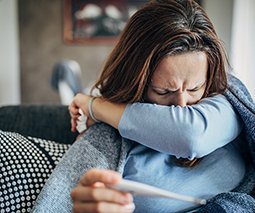Five reasons why you need a family doctor

Kids and trips to the GP go together like monkey bars and broken arms. While you may think any doctor will do, the role of a family GP isn’t just to treat your family when they’re sick. Really! We’ve taken a closer look at why families should find a regular GP, and also detailed a Plan B for weekends, after hours and those upcoming summer public holidays, when your doctor may not be available.

Your children will no doubt see a doctor dozens of times over their early years, but there are times your doctor will play a vital role in your family, even when everyone appears healthy. Many families don’t have a regular GP – it could be because they’ve moved, or they just haven’t found the right doctor. Here’s why you should work on finding a GP that your family is comfortable with:
1. The comfort factor
Like any relationship, the longer it continues, the more comfortable we get with the other person. This is true of seeing a regular GP, and it becomes vitally important in building trust and communication. Most children don’t tend to warm to strangers immediately so it can be difficult for a GP to discover an ailment, when a child isn’t keen to say how they feel. My children have been seeing our GP since they were born, and they adore him (and his constant supply of jelly beans!). Even when they were young and unable to communicate properly, he was able to decipher what was wrong with them, because they’d forged a relationship. They hold no fear of visiting the doctor, and will often tell him more about how they feel than they tell me!
2. The knowledge factor
If your GP knows your children’s medical history, he or she is better armed to understand any ongoing issues, and it will all be kept in detailed medical notes. The same goes for you and your partner. GPs have an incredible understanding of how the body works – they’re not just experts on one particular part of the body or a certain illness. And they have an uncanny ability to read between the lines, particularly if they know you and your kids well enough. They will understand that although you may present with what you think is depression, it could be linked to other symptoms, like chronic back pain.
3. The prevention-is-better-than-cure factor
If you have a regular GP, they’re able to see just how your family’s health changes over the years. They may notice family members putting on weight, or a new mum whose mood has changed significantly after the birth of a baby. A family GP will ensure that regular health checks like Pap smears and breast examinations are kept up to date, as well as the kids’ immunisations. They can also provide advice for your health, based on the medical history of your family, and help you kick bad habits like smoking.
4. The extended care factor
There are times when you or your children will need to be referred to a medical specialist, or other health professionals like psychologists. A regular family GP is able to co-ordinate these referrals, and keep a close eye on your progress, by communicating with your other health carers. It means there’s a continuity in your family’s healthcare.
Your GP will also be well aware of support services in your area, that can help you and your children. This is particularly important if your family is dealing with mental health issues, as your GP will be able to point you in the direction of counselling services.
5. The management factor
A GP will help your family manage chronic medical conditions like diabetes and asthma, and is able to come up with a Care Plan for the future management of those conditions. It also means any other health professionals involved in your care can be part of a team approach towards your family’s health.

What can you do if your family GP isn’t available?
There are going to be times when you can’t see your family’s regular GP – particularly over the summer when there are a raft of public holidays. While your regular GP should always be the first port of call, if it’s after hours, National Home Doctor Service (13SICK or 13 7425) can send a bulk-billed doctor to your home. That doctor will then send a report back to your regular GP, so there aren’t any gaps in your healthcare. Here’s how the service works in conjunction with your family’s regular GP:
Doctors from the National Home Doctor Service are on the road from 6pm on weeknights, from noon on Saturday through to 8am on Monday morning, and all day on public holidays. To organise a home visit, call 13SICK (13 7425).
(This is a sponsored post for National Home Doctor Service)









